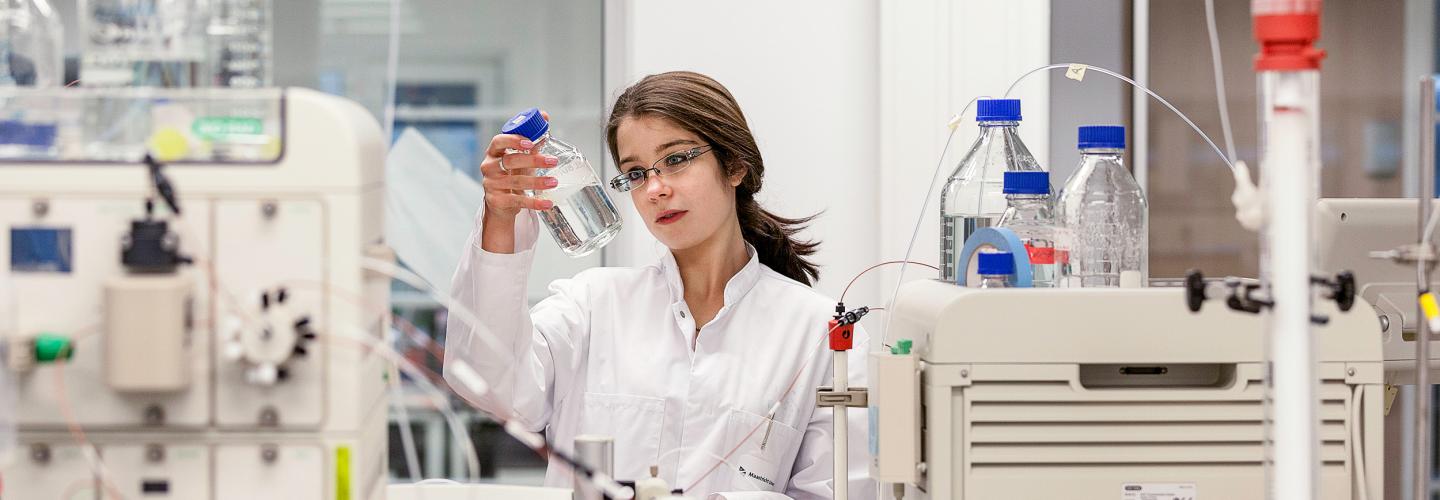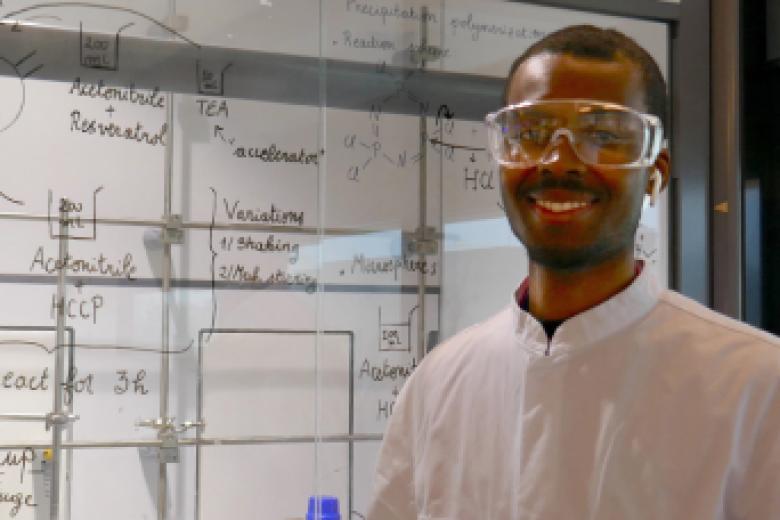Courses & curriculum
In the master Biobased Materials, you'll play a central role in shaping your own education. You have plenty of room to choose your own set of courses that fit your specific interests and career ambitions.
You can choose from courses on subjects like bio-organic chemistry, biopolymers, applied materials science and engineering, molecular engineering, bioengineering.
Curriculum overview
Year 1
Period 1 and 2 : An introduction to biobased materials
In the first 2 periods of 8 weeks each, we set you up for success by giving you a broad foundation with 4 compulsory courses. We will introduce you to the fundamentals of the different disciplines in the programme: biobased materials, process technology, biology, material science and organic chemistry.
Period 3: Project period 1
After having obtained a solid foundation with the compulsory courses, you’ll gain the complementary skills and hands-on experience with a research project. Over the span of 4 weeks, you’ll work in a small group on a real-life research challenge. This is often in direct collaboration with companies and research institutes like The Aachen-Maastricht Institute for Biobased Materials (AMIBM).
Period 4 and 5 : Tailoring your programme
During the 4th and 5th period it’s time to choose your electives. You have 8 electives to choose from which will enable you to specialize your curriculum to fit your interests and ambitions: Molecular Genetics and Bioengineering, Advanced Macromolecular Chemistry, Applied Materials Science and Engineering, Biomedical Materials, Plant-derived Building Blocks, Organic coatings, Nanoscience and Nanotechnology, Sustainability of Biobased Materials. We will personally guide you during this process so that you can make a decision that is in line with your goals.
Period 6: Project period 2
You will finish off your first year with another research project. As you and your team members have all gained different additional knowledge and skills during the electives, it’s now time to collaborate to solve the next research-challenge that is ahead of you.
Year 2
Period 1: Tailoring your programme
You’ll start your second year with elective courses. This is also the time where you can choose to further expand your entrepreneurial ideas and ambitions. You namely have the choice from the following courses: Commercialization and Entrepreneurship, Biopolymers, Polymer Processing.
Period 2 - 6
The rest of the second year is devoted to the grand finale, your master thesis. Your thesis project helps you build your academic profile through an integrated piece of research and/or research-based engineering, preparing you for your future career. You can choose to do your thesis project at a company, a research institute, an NGO, in a foreign country or in Maastricht, it’s fully up to you. During your thesis project you’ll have a personal mentor supporting and advising you in the process.
Our best traits
High-quality, small-scale, and personal education
You’ll be taught by experts in the field, in a small, international group of students, with a personal mentor to guide you during the two-year programme.
Build your own curriculum
In the first semester you study compulsory courses to give you a strong multidisciplinary foundation. Then you choose your own curriculum. With varied electives on offer, you tailor your programme to match your interests and career ambitions.
State-of-the-art facilities, located in the heart of industry
The programme is run in collaboration with the Aachen-Maastricht Institute for Biobased Materials (AMIBM). AMIBM focused on novel strategies to produce advanced biobased materials and chemical building blocks in a sustainable and economical manner. During the programme, you’ll be trained by the top researchers from AMIBIM and use their state-of-the art experimental facilities.
Student projects
Michelle Mendez Fonseca
“I wish I could have eaten them, they were so juicy”, says Michelle Mendez Fonseca about the 18 kg of grapes they peeled. Of course, eating in a laboratory is not a wise thing to do therefore; they could only salivate during their work. The peels of red grapes are the main biological source of the of the antioxidant resveratrol. Michelle, who originates from the isle of Aruba, is one of 18 students working on a mutual goal: materials research involving resveratrol.
Though
Michelle obtained her bachelor in chemistry at Hogeschool InHolland in Amsterdam, a university for applied sciences. “The switch was overwhelming”, says Michelle. “The pace and workload are a lot higher than I was used to. Now, a few months later, I have everything under control. If you consider the master’s, I really would advise you to do so.” After she finishes her studies, Michelle thinks of obtaining a PhD.
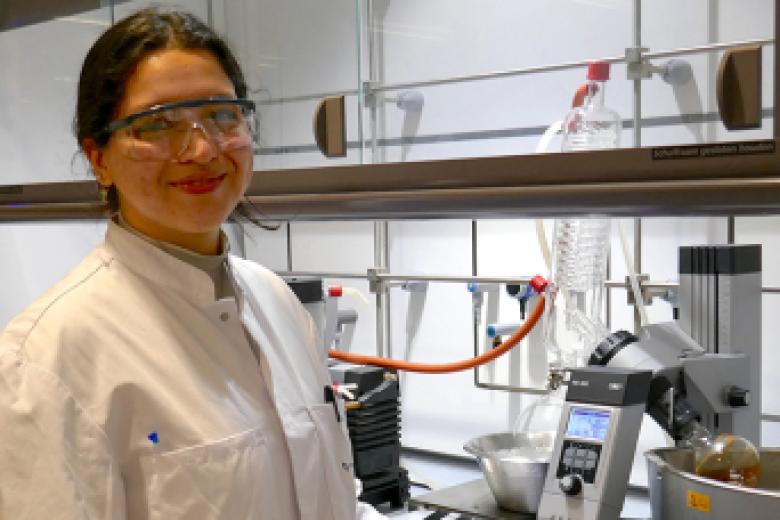
Tessa Lokate
Resveratrol, the main topic of their research, is studied for its health benefits. However, after being asked to do something with the antioxidant, the students came up with an idea in the field of material science. “We started with an extensive study of the literature and found one article that investigated the role of resveratrol as a flame retardant”, says Dutch student Tessa Lokate. “We explore if resveratrol can make the biobased polymer polylactate more fire resistant. We do this because only little is known about resveratrols role as a flame retardant. We do not know if our project will succeed and this is what makes science fun. Even if we fail, we succeed because a negative result is a result as well.”
Tessa obtained their bachelor in chemistry at a university for applied sciences, Avans Hogeschool in Breda. She had a though change of environment from hogeschool to university. “Although our bachelor’s theory fits well with the masters, at first, everybody struggled with the work load.” After she graduates, Tessa wants a job in a company that offers the possibility to do lab work. I, most certainly do not want to pursue a PhD”, she says.
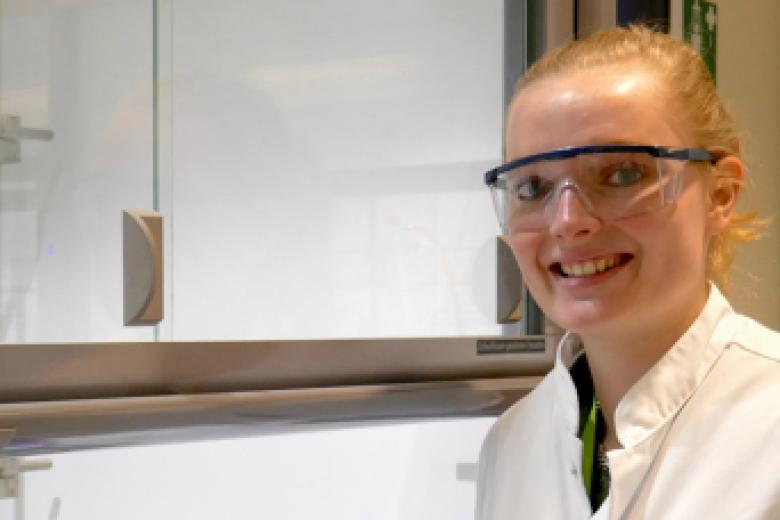
Emese Szikszai
Not every research project starts with an overwhelming success. The 18 students of the master’s programme of Biobased Materials, who are jointly working on their first research project month, know all about this. Although their goal is the same, test the flame retardant properties of resveratrol, their approaches differ. The first students managed to isolate some resveratrol from grape peels. The yields are disappointing. “Well, We did not know if the experiments would work out the way we anticipated, so we accept that they did not and try something different”, says Emese Szikszai who previously studied bioengineering at the Hungarian University of Agriculture and Life Sciences in Budapest. For most students, trying something different means that they fetch their resveratrol out of the chemical cabinet.
Future
Emese at first did not know what to do after her master’s study. Becoming a PhD-student was almost certainly not an option. Lately, she seems to be changing her mind and she might even pursue a position as a PhD-student.
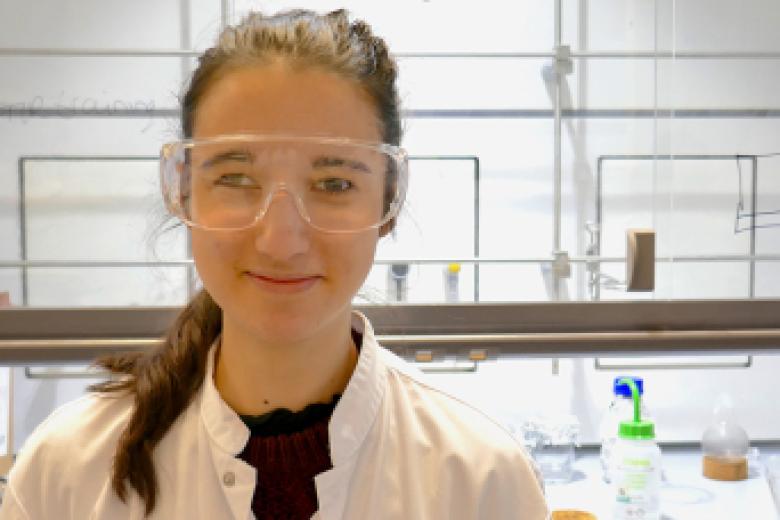
Xavier Nauts
The students have several backgrounds in chemistry, materials or biomedical sciences. “That’s what I like about our group”, says Dutchman Xavier Nauts. “Everyone has their own view of the project, based on their expertise.” Nauts obtained his bachelor’s in biomedical sciences at Maastricht University. “The programme has been designed in such a way that people, regardless of their bachelor’s, can participate. If you have a background in biomedical sciences, you will start following courses with an emphasis on chemistry and material sciences. Something similar goes for those with a background in material science or chemistry.”
Xavier feels he did well in changing from biomedical sciences to biobased materials. “Every year about 300 students graduate in biomedical sciences, but only a few in Biobased Materials. I wanted to be more of an engineer and the master’s offers the opportunity to focus my master’s thesis project on biomedical materials.” Going from biomedical science tot biomedical materials, completes the circle, how sustainable is that!
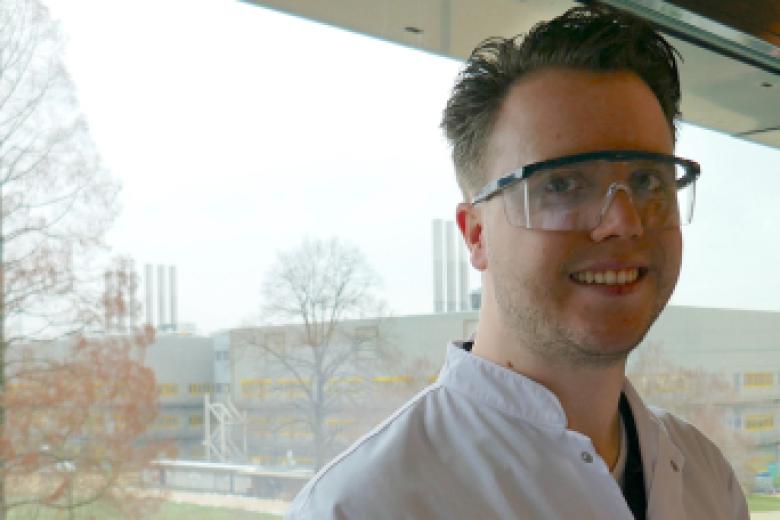
Want to view the courses of previous years?
